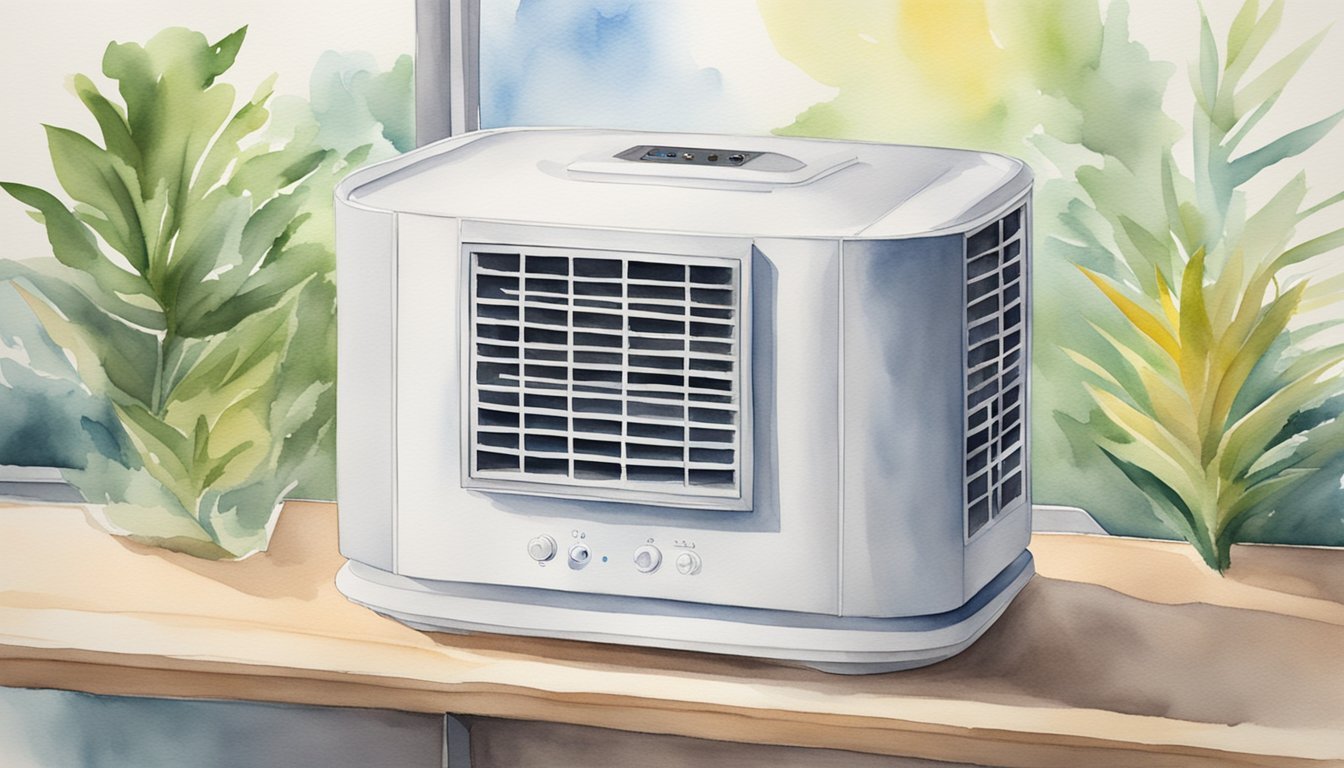Understanding Air Purifiers and Odor Control
When it comes to keeping indoor environments free of unpleasant smells, air purifiers can be potent allies. They’re designed to filter out various contaminants, including those responsible for odors, to improve indoor air quality.
How Air Purifiers Work
Air purifiers operate by circulating air through a series of filters that capture particles and gases that can contribute to poor air quality and odors. The core component in this process is typically a HEPA filter, which stands for high-efficiency particulate air. This type of filter is highly effective at trapping particulate matter such as dust, pollen, and pet dander.
For odor control, air purifiers often incorporate an activated carbon filter. Activated carbon is adept at adsorbing volatile organic compounds (VOCs), smoke, and other gaseous pollutants, which are common sources of indoor odors. The efficacy of an air purifier in removing odors can be measured by its clean air delivery rate (CADR) rating, which indicates the volume of clean air that the purifier can deliver.
It’s important to note that the Environmental Protection Agency (EPA) suggests the use of air purifiers as a complementary measure, rather than a standalone solution for air quality problems. Ensuring proper ventilation and regular maintenance of HVAC systems can also significantly impact indoor air quality.
While air purifiers are effective at filtering contaminants, they vary in their ability to handle different pollutants. For instance, not all air purifiers will generate ozone, which is something to consider since ozone can be a lung irritant. Purifiers equipped with UV light are claimed to kill airborne pathogens, and systems may also include pre-filters to capture larger particles, thus extending the life of finer HEPA filters.
Understanding the specific needs of an indoor environment is crucial when selecting an air purifier. For those looking to enhance their respiratory health and reduce the presence of odors and airborne allergens, choosing a purifier with a suitable set of filters—including HEPA and activated carbon filters—is essential. Some devices also have energy efficiency ratings, like Energy Star, to ensure they deliver clean air economically. For additional insights, readers might explore information provided by the United States Environmental Protection Agency or consider products with proven efficacy like Winix air purifiers, which include models with true HEPA and activated carbon filters.
Air purifiers can be a valuable addition to homes and offices, contributing to overall air quality and comfort when used properly alongside other air quality improvement practices.
Effects of Air Purifiers on Various Odors and Particles

Air purifiers tackle a range of airborne particles, contributing to improved air quality. Certain types target specific odors and contaminants, enhancing the living environment for individuals, especially those with sensitivities or respiratory conditions.
Addressing Different Types of Odors
Air purifiers function by drawing in air and passing it through one or more filters. These filters can capture particles as small as microns in size, which includes common household smells from pets, cooking, and garbage. Purifiers equipped with activated carbon filters are particularly adept at absorbing bad smells and chemical pollutants, including volatile organic compounds (VOCs) emitted from furniture, paint, and natural cleaning products.
The type of filter is crucial for targetting specific odors. For instance, HEPA filters are highly efficient at trapping dust, pollen, mold spores, and pet dander, which may indirectly reduce associated odors. Additionally, some air purifiers can help with tobacco smoke and its resultant odor by trapping the smoke particles.
Benefits for Allergy and Asthma Sufferers
For those dealing with allergies or asthma, air purifiers can be beneficial. By removing common allergens such as pollen, dust mites, and pet dander from the air, individuals can experience fewer allergy symptoms and improved respiratory health. Mold spores and pet odors, which can be triggers for asthma, are also filtered out, making the air cleaner to breathe.
The benefits extend to people suffering from seasonal allergies or hay fever, as air purifiers reduce the presence of pollen indoors. Those living in areas with high pollution levels or near pollutant sources can also gain some relief, as air purifiers can reduce the entry of exterior contaminants like smoke and smog. Moreover, the effectiveness of air purifiers in removing viruses is dependent on the filtration technology but may provide additional respiratory protection. Reference to these benefits can be found on Live Science.
For maintaining respiratory health, particularly for asthma and allergy sufferers, regular use of an air purifier in conjunction with other measures, like using hypoallergenic bedding and keeping carpets and flooring clean, can optimize the living space to support their needs.

